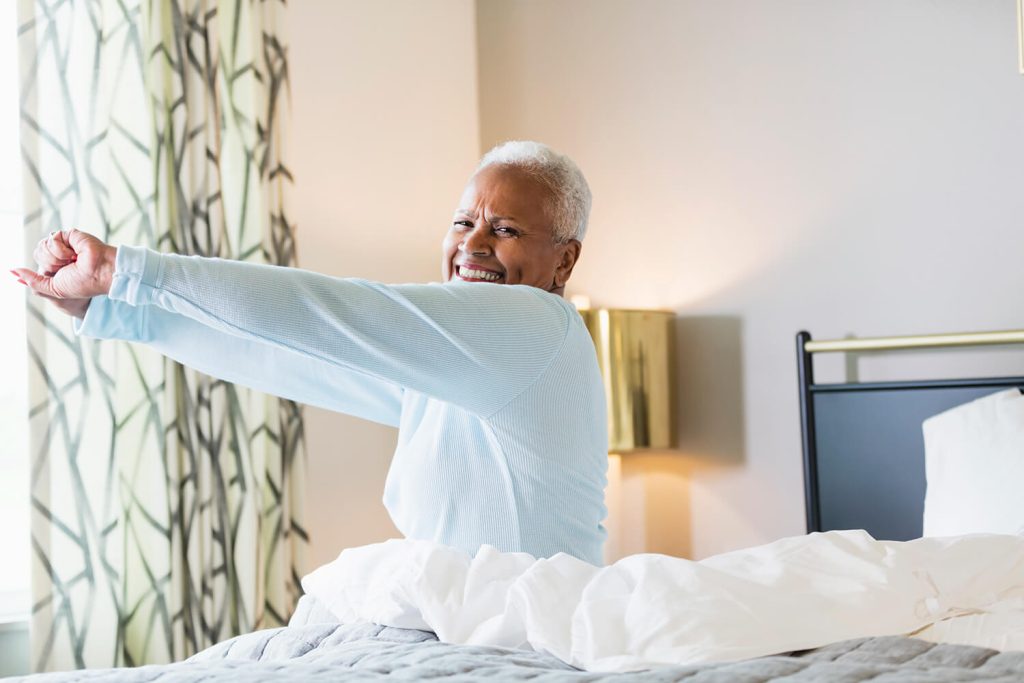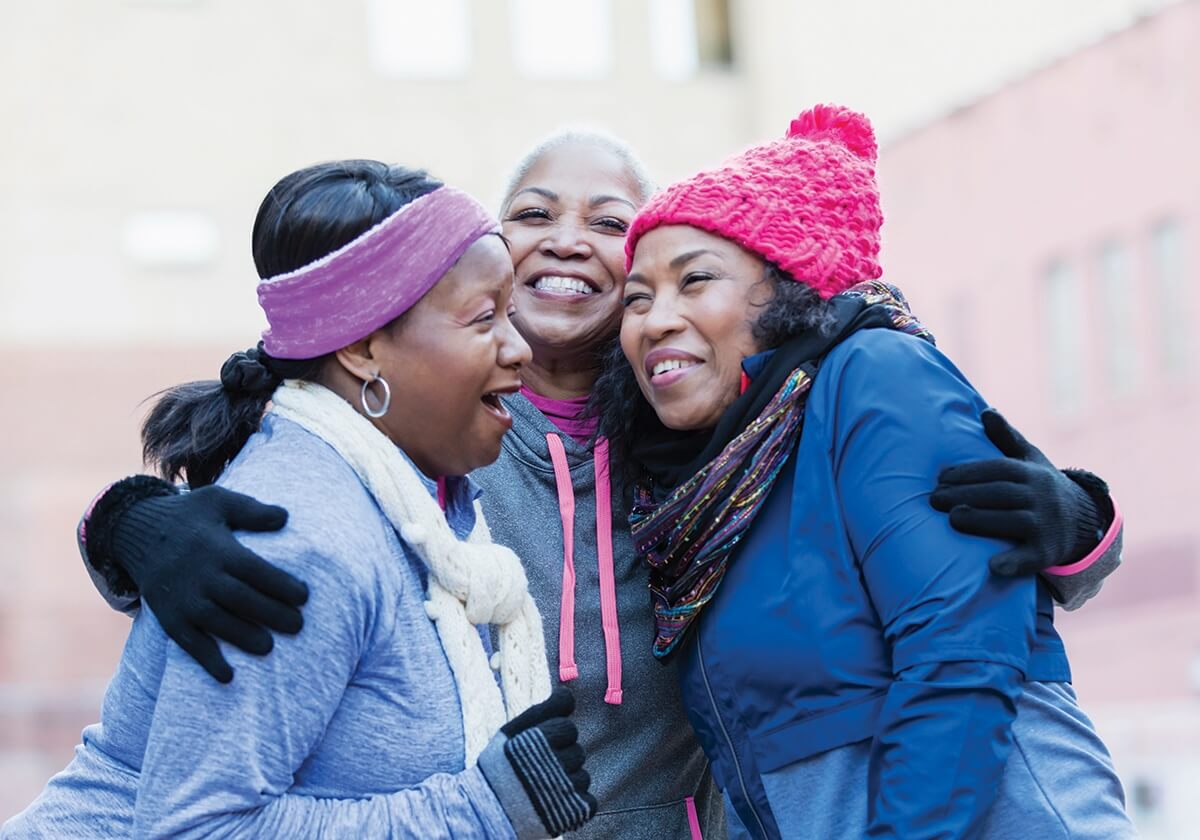As the days shorten and the weather cools, many people feel more lonely and sad. Data has shown that as many as 38% of Americans experience a mood dip during winter. In some cases, the cause is seasonal affective disorder (SAD). But not all winter blues are linked to this condition. In many cases, small lifestyle changes can go a long way toward brightening your spirits. We spoke with Kelsey Martin, department manager of Psychiatric and Counseling Services at Winona Health, to learn more about why these feelings happen and how to manage them.
Causes
Martin explains that shorter days are a primary factor for winter’s impact on mood.
“The decrease in sunlight during the winter months affects our vitamin D levels,” she says. Vitamin D regulates mood by influencing our bodies’ chemical messengers. With less sunlight, we receive less vitamin D. That can lead to a decline in mood.
People are less active in the winter as well. Spending more time indoors can impact mood.
Risk Factors
Older adults are more at risk for these seasonal challenges. National data shows that more than one-third of adults 45 and older feel lonely. Nearly one-fourth of adults 65 and older are considered socially isolated.

The CDC says older adults face increased risk. That’s because of factors like living alone, losing loved ones, chronic illness and conditions like hearing loss.
“As people age, their social circles often diminish,” Martin says. “Seniors may find it more difficult to leave their homes. That can limit their social interactions and contribute to a growing sense of loneliness.”
Seasonal impact
![]()
Up to 10 million Americans are affected by seasonal affective disorder (SAD) each year.
SOURCE: AMERICAN PSYCHIATRIC ASSOCIATION
Managing mood
Martin offers several ways to help lift your mood this winter:
• Stay active: Engage in activities that match your ability. Regular physical activity, such as yoga or walking, can improve your mood and energy.
• Get enough sleep: Sticking to a sleep routine is crucial. Try to avoid napping during the day. It can disrupt your sleep-wake cycle. Good sleep will help regulate your internal clock.
• Get some sun: Natural light is beneficial for your mood. By simply opening your curtains and sitting near the window, you can reap the benefits of vitamin D. You can also consider using a light therapy lamp.
• Eat healthy: Eating well can have a big impact on how you feel. Eat a balanced diet and avoid too much sugar and processed foods.
• Stay engaged: Maintaining social ties can help ward off feelings of isolation. Find ways to stay connected with family, friends and community members.

Take charge of your wellbeing
If the strategies above don’t help, Martin says to talk to your doctor. It’s important not to ignore the problem.
“If you’ve tried improving sleep, increasing sunlight exposure, eating well and staying active, but you still feel persistently sad or unmotivated, it’s worth talking to your doctor,” she says.
Your doctor can help rule out medical conditions and may recommend further evaluation or treatment, including therapy.
“Therapy doesn’t have to be intimidating,” Martin adds. “Sometimes just talking to someone can be beneficial. It’s a safe space to share thoughts and feelings without the pressure of immediate solutions.”
Remember, she says, reaching out for support is a sign of strength. It is a crucial part of improving your quality of life.
Did you know?

Social isolation and loneliness are linked to higher rates of:
• Dementia • Heart disease • Stroke • Depression • Anxiety
SOURCE: CENTERS FOR DISEASE CONTROL AND PREVENTION
If you are struggling with severe feelings of loneliness, sadness or distress, the Suicide & Crisis Lifeline is available 24/7 by calling or texting 988.


